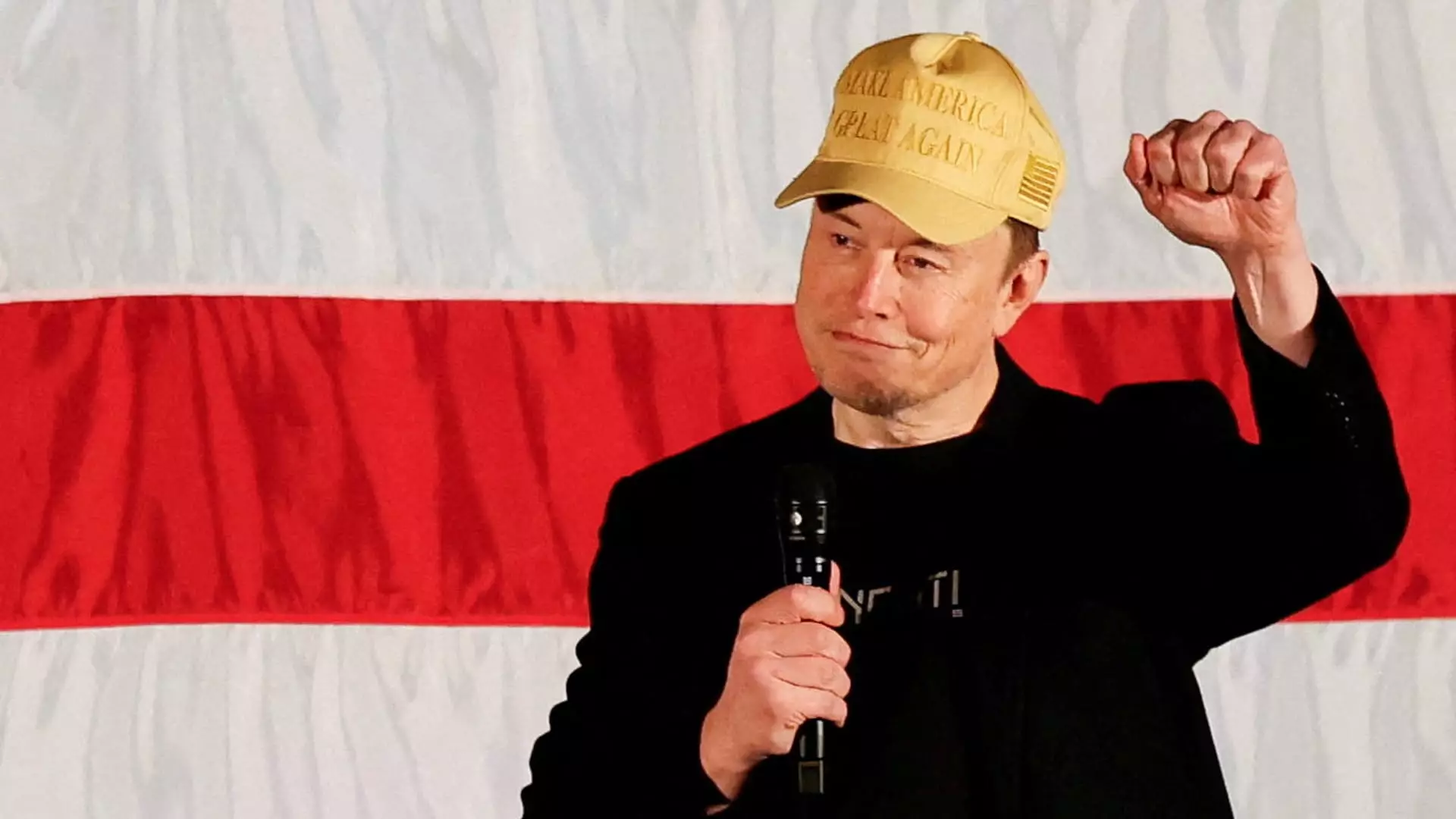In an unexpected turn of events at a political event in Harrisburg, Pennsylvania, Elon Musk made headlines by announcing that he would award $1 million daily to registered voters who support his pro-Trump political action committee. The billionaire, known for his unconventional approaches, stated that this money would be available every day until the election, revealing his intentions to drive voter registration in crucial swing states. This bold move, while undeniably attention-grabbing, raises ethical questions about the integrity of the electoral process and the potential ramifications of such financial incentives.
During the event, Musk handed a large check to a man named John Dreher, who was present as a supporter of the petition. Musk’s nonchalant demeanor throughout the event suggested a level of amusement with his own generosity, expressing that he found the initiative to be both entertaining and a reasonable use of his wealth. As the CEO of Tesla and SpaceX, with a net worth nearing $250 billion, Musk’s financial backing of a political faction is not new; however, framing it within a context of direct monetary rewards for voter participation sets a precarious precedent.
Musk emphasized Pennsylvania’s pivotal role in the upcoming election, proclaiming that “How Pennsylvania goes, I think, is how the election goes.” His comments highlight the strategic importance of swing states in determining presidential outcomes. By galvanizing voter registration efforts in these states, particularly among Republican supporters, Musk aims to create a substantial impact on the electoral landscape.
The push for sign-ups was underpinned by a deadline set for the closing of Pennsylvania’s voter registration, showcasing a sense of urgency that aligns with Musk’s high-stakes approach to political engagement. However, the emphasis on swing states raises questions about the potential for wealth to wield undue influence on political processes, stirring fears of a distorted democratic system financed by billionaires.
Rick Hasen, a respected law professor and election analyst, voiced concerns regarding the legality of Musk’s initiative, suggesting that it may infringe upon federal election laws. Specifically, laws prohibiting payment for voter registration or voting highlight the dangers of commodifying electoral participation. Hasen poignantly noted, “Congress has determined you should not be able to sell your vote to the highest bidder,” underlining the foundational principle that in a democracy, voting should not be a transaction but a civic duty.
Critics argue that Musk’s approach undermines the integrity of the electoral process and raises ethical issues surrounding democracy itself. With democracy often viewed as a balance between power and responsibility, the introduction of financial incentives for voter registration could create a scenario where political allegiance is bought rather than earned through accountability and policy discussions.
Musk’s involvement in political discourse is not limited to financial incentives. His public comments often revel in controversy, as demonstrated by his remarks regarding key political figures. He has perpetuated debunked theories surrounding voter fraud, criticized governmental regulations, and challenged the press on multiple occasions. Such rhetoric enhances the polarization of political dialogue, creating an environment rife with mistrust and division.
In a recent speech, Musk went as far as to make provocative comments about individuals in political office, stirring concern among audiences and drawing the attention of security agencies, particularly due to his remarks about Vice President Kamala Harris. His statements seem to serve a dual purpose; they engage his audience while simultaneously pushing the boundaries of acceptable public discourse.
The events in Harrisburg showcased Musk’s deep-seated skepticism towards government efficiency, implying that the government should take a backseat to market-driven solutions. This ideology aligns with contemporary arguments for deregulation and minimizing federal oversight, regardless of his companies’ dependency on government contracts. Musk’s stance reveals a glaring contradiction; while he benefits from governmental support, he consistently pushes against its influence.
His dismissive attitude towards regulations extends to various governmental agencies that oversee public welfare and safety, further exemplifying the tension between industrial progress and governmental accountability. Musk’s assertions, such as mocking requests from regulatory agencies regarding environmental impact studies, depict a reluctance to compromise the development of his enterprises with necessary governance.
As Elon Musk pivots towards political activism under the banner of financial incentives for voter engagement, the implications of his actions remain a topic of fervent debate. The intertwining of immense wealth with electoral participation raises essential questions about the essence of democracy and the lengths to which individuals will go to secure political outcomes. It is crucial for citizens and lawmakers to scrutinize such movements, ensuring that the foundations of democracy remain untarnished by financial dominance. As Musk continues to occupy a powerful stage in the political arena, the unfolding narrative will shape not only the future of the election but the broader implications of wealth in political influence.



Leave a Reply